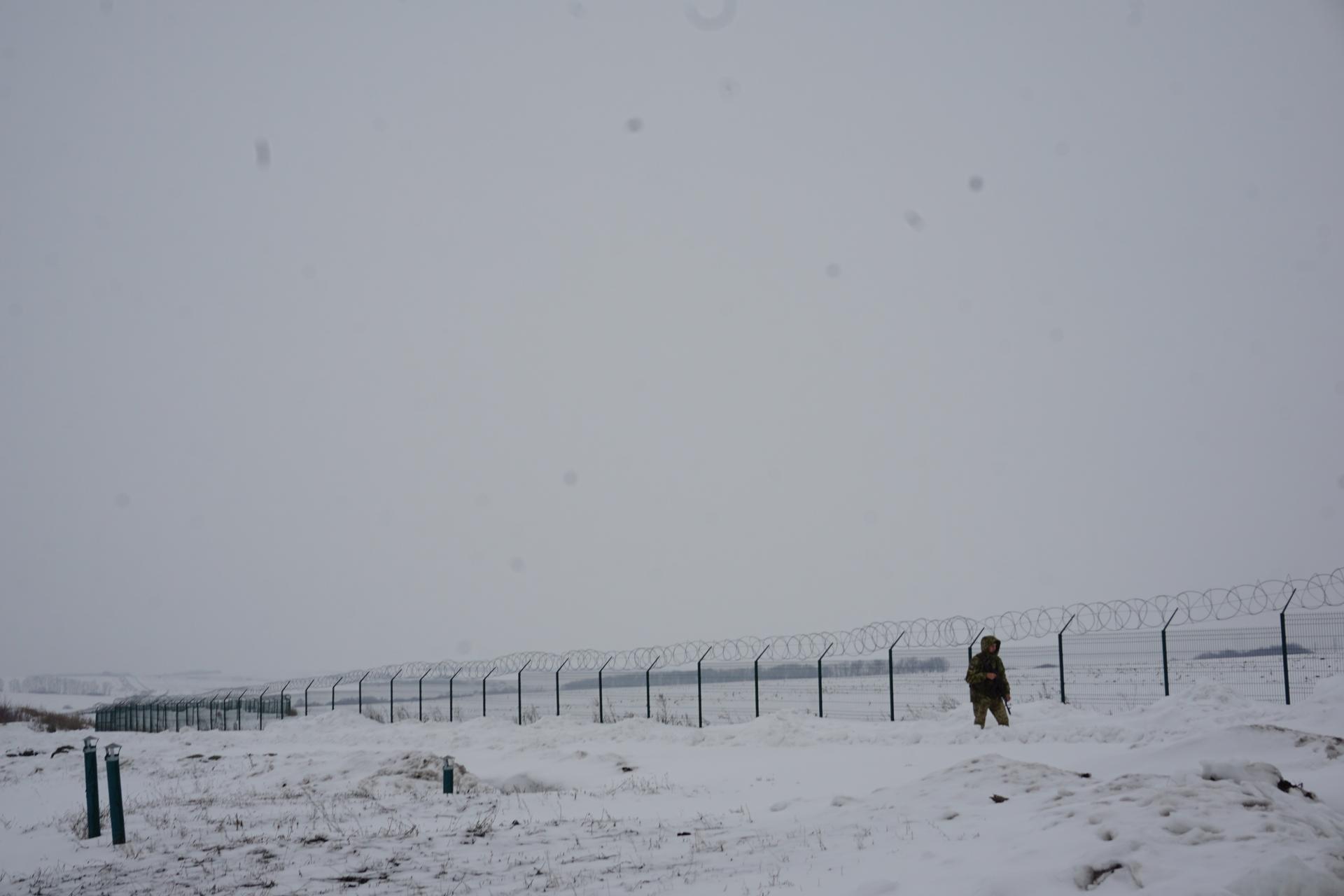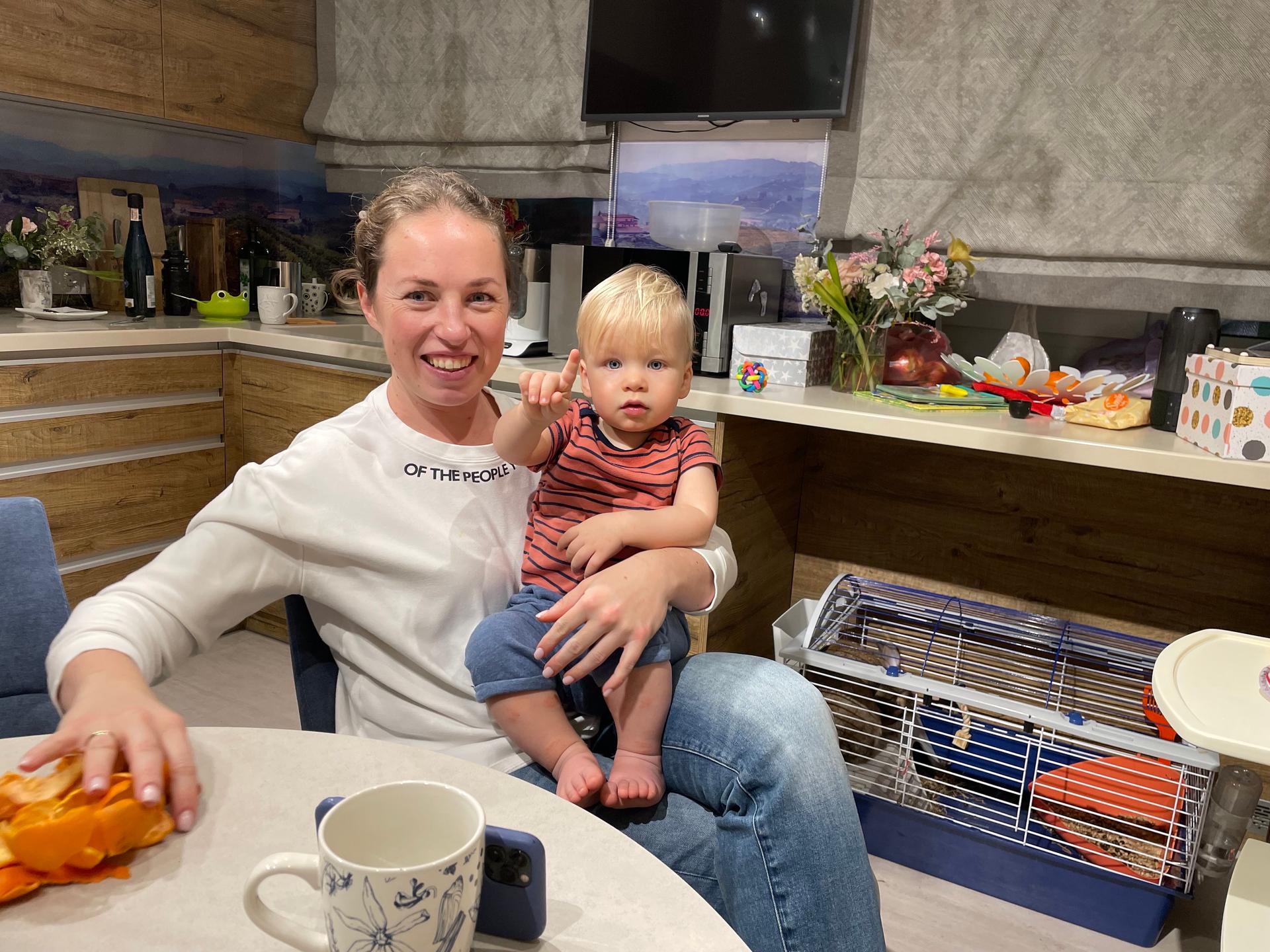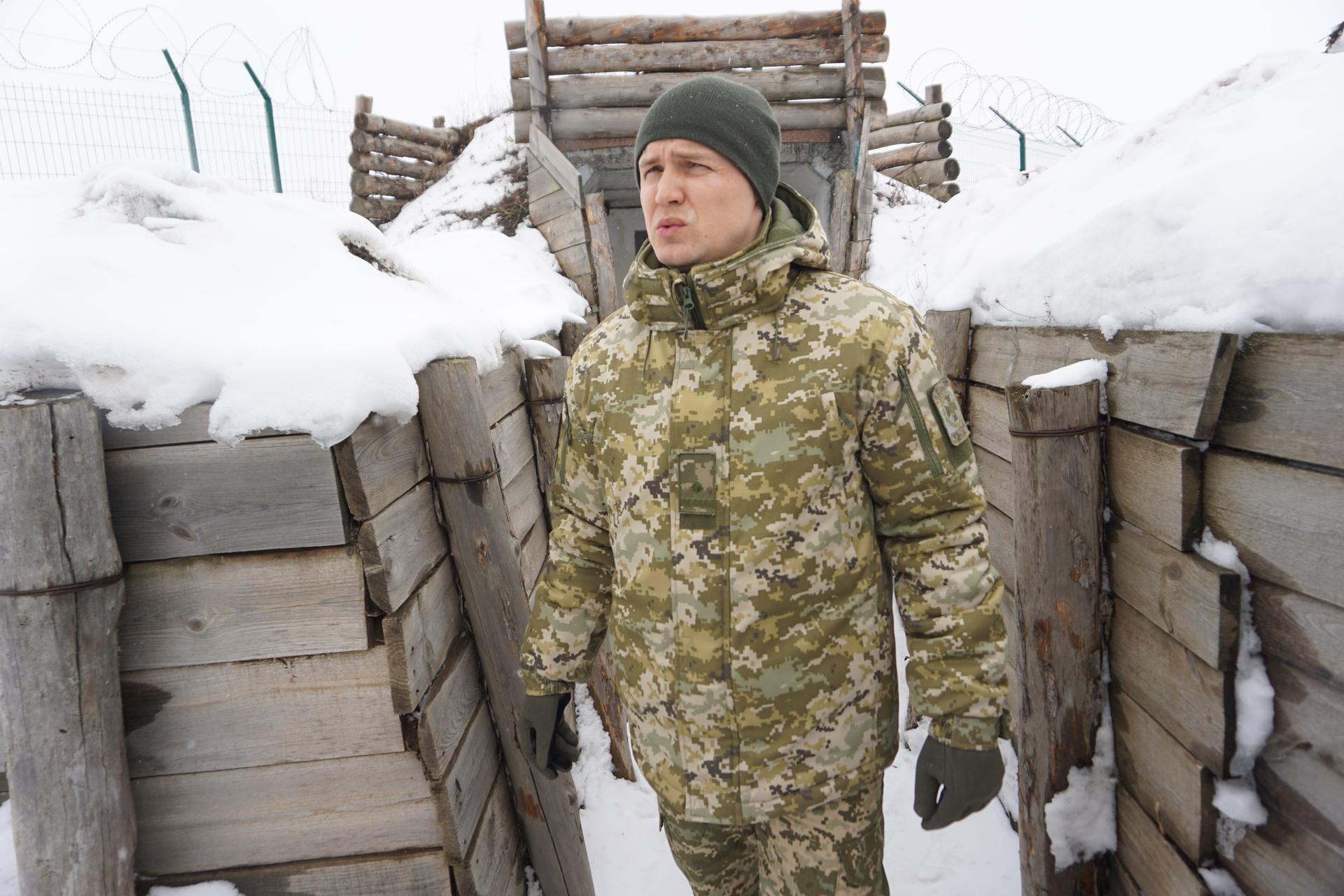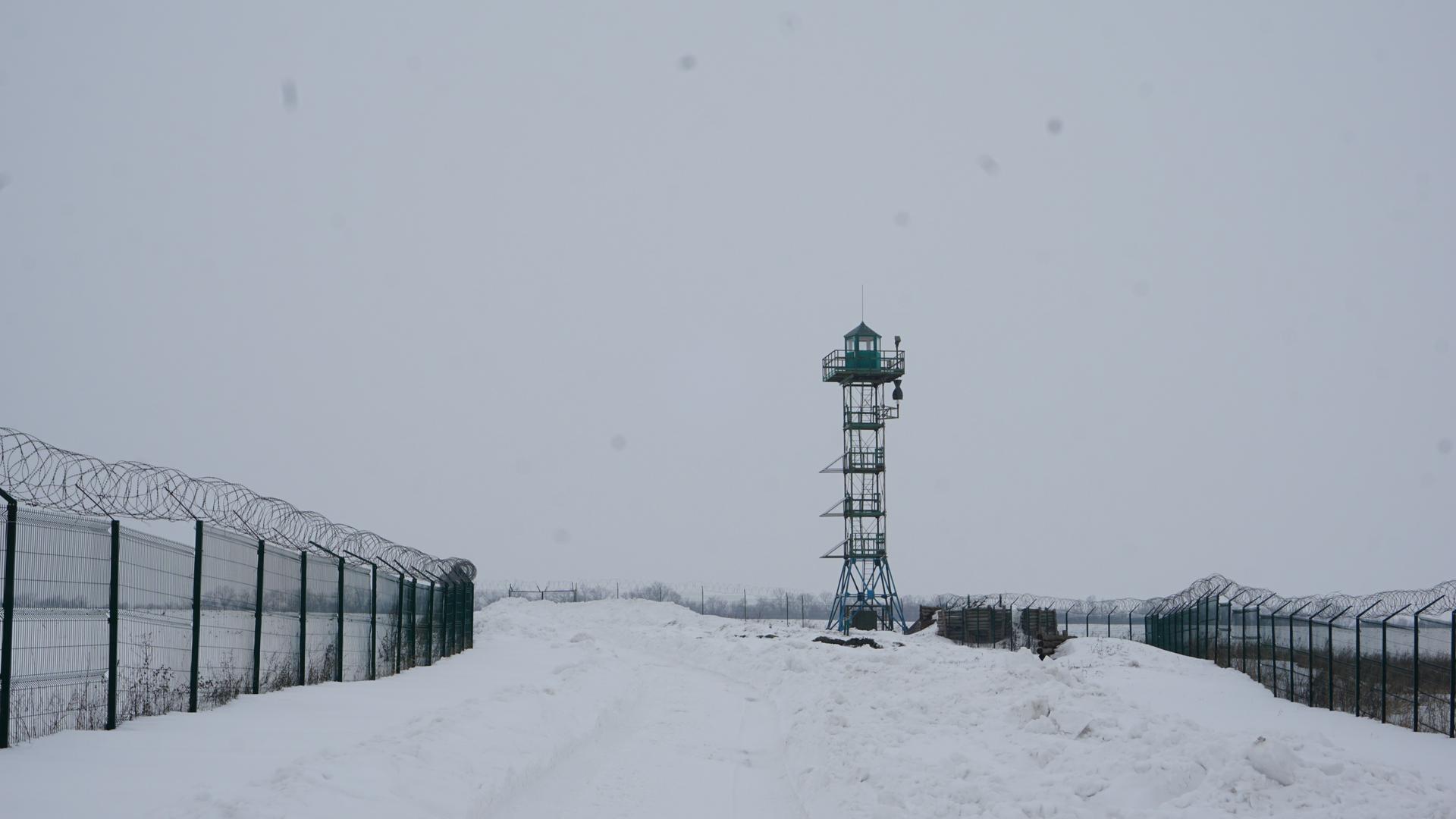Russia’s Defense Ministry announced on Tuesday that it is pulling some troops back, away from Russia’s border with Ukraine.
Russian President Vladimir Putin said that Moscow is ready for security talks with the US and NATO and that Russia doesn’t want war.
He called for “peaceful” discussions over Ukraine’s bid to join NATO — which Moscow sees as a major threat.
But concerns of an imminent Russian invasion into Ukraine remain. NATO and Western governments said they had seen no signs of deescalation yet, and Russia gave no details on the locations or numbers for troop withdrawals.
Ukraine’s government is skeptical. The Ukrainian foreign minister tweeted on Tuesday that “we don’t believe what we hear, we believe what we see.”
People in Ukraine living near the Russian border are keenly aware of what’s at stake.
Related: How Kyiv residents are preparing for a possible war with Russia
In Kharkiv, Ukraine’s second-largest city, fewer than 40 miles from the Russian border, residents with ties to Russia say they’re proud to be Ukrainian. They also say that they just don’t want war.
Last month, Ukraine’s President Volodymyr Zelenskiy told The Washington Post that if the situation with Russia escalates, Kharkiv could end up being occupied.
That comment wasn’t well-received by people there.
“While I’m the mayor of the city, we won’t let anyone occupy Kharkiv. Not Russia, not anyone.”
“While I’m the mayor of the city, we won’t let anyone occupy Kharkiv. Not Russia, not anyone,” Kharkiv’s mayor, Ihor Terekhov, said in response to the president’s remarks.
Soon after, people came out into the streets of the city to send a message to Moscow: “Glory to Ukraine,” people chanted, holding signs that said, “Kharkiv is Ukraine.”

For some, this outpouring of Ukrainian patriotism is surprising. But not for Oleksandr Zinchenko, a historian, journalist and a documentarian from Kharkiv.
Zinchenko has some Russian roots, but said that he identifies with Ukrainian culture. And as he gets older, he said that he’s losing touch with Russian culture.
Related: Ukraine says it’s ramping up its cyberdefense in light of Russian attacks
Oleksandr grew up in Kharkiv, speaking Russian. His mother was born in Russia and he has family there. He said that people here in Kharkiv have their own unique Ukrainian identity.
Throughout Kharkiv’s history, the city went through waves of Ukrainian renaissance, but also periods of “Russification,” Zinchenko said.
The Russification of Kharkiv intensified after World War II. The formula was simple, he said: divide and conquer. Ukrainians were moved to other city centers throughout the former Soviet Union, and ethnic Russians were resettled in Ukrainian cities like Kharkiv.
Today, though, more people in Kharkiv embrace their Ukrainian identity — like Igor Krolevets and his wife, Tatiana Krolevets.
The couple runs a dental clinic in Kharkiv — they also have a toddler named Danilo.
Igor Krolevets is from Kharkiv and has lived here his whole life, while Tatiana Krolevets is from Lviv in western Ukraine.
“I never asked myself a question of who I am, because I always identify as Ukrainian.”
“I never asked myself a question of who I am, because I always identify as Ukrainian,” Tatiana Krolevets said.

Igor Krolevets said that he first confronted the question of his own identity at the age of 16, when he had to choose which nationality would appear on his passport, Ukrainian or Russian.
He felt Ukrainian, he said. And he was living there. So, he leaned into his Ukrainian identity.
Years later, when the Krolevets got married, they decided to settle down in Kharkiv.
Related: Russia has been at war with Ukraine for years — in cyberspace
Tatiana Krolevets said that, at first, it was a difficult adjustment — people weren’t used to hearing Ukrainian. That was back in the early 2000s. But in the last eight or so years since the conflict with Russia began, attitudes have changed.
In the past, it didn’t make much difference either way — being Russian or Ukrainian, she said.
“But now, if somebody says that you are from Russia, it’s [a] very bad feeling, and everyone will tell you that ‘no, I’m from Ukraine,’” she said.
With all the talk about a possible expanded conflict with Russia, the Krolevets say this is a difficult time. They have a business to run and employees who rely on them. They’re also concerned about their son, Danilo.
“We don’t know what will happen tomorrow or after tomorrow and people want to be sure that they will be safe, and they can bear children here and give them [an] education in Ukraine,” she said. “Everyone wants to believe in this, but nowadays, we cannot be sure that it is possible.”
For now, the Krolevets say they’re staying in Kharkiv, and hoping for the best.
Not far outside the city, Ukrainian military forces are preparing for the worst. There’s a long, barbed-wire fence separating Ukraine from Russia. Some 50 yards back, there’s an intricate system of trenches.
Mykola Feren is an officer with Ukraine’s Border Guard Service.
Although surrounded by open fields, he said that this observation post is elevated so that the border guards can see what’s coming.
A short walk through the trenches into a concrete bunker leads to a space inside about the size of a minivan.
Mykola said that none of this was here before the conflict with Russia began in 2014.

Today, if Russia decides to attack the Kharkiv region, the people stationed at this post would be among the first to know.
“Basically, we’re talking about hours, but of course, there are various factors that influence how fast they can get here, but it’s definitely hours.”
Volodymyr Solohub contributed to this report. Anna Pratt edited this digital story.
Our coverage reaches millions each week, but only a small fraction of listeners contribute to sustain our program. We still need 224 more people to donate $100 or $10/monthly to unlock our $67,000 match. Will you help us get there today?
